The Most Overlooked Skill You Need to Land a Remote Job
You’re ready to ditch the office and land that dreamy remote job. You’ve polished your resume, built your tech stack, maybe even added a few new certifications.
But if you’re still not landing interviews or offers, there might be something you’re overlooking — and it’s not another tool or bullet point.
In this episode of The Remote Nomad Podcast, I sit down with TEDx speaker and soft skills coach Scott Asai to unpack one of the most underrated keys to remote job success: soft skills. From emotional intelligence to communication, these are the often invisible traits that make or break your chances of standing out, getting hired, and thriving once you're in the role.
Watch the full episode above.
What Are Soft Skills and Why Do They Matter?
Let’s start with the basics. Soft skills are the human-to-human abilities that influence how we connect, collaborate, and communicate—things like empathy, listening, leadership, and self-awareness.
While hard skills may land your resume in the “yes” pile, soft skills are what actually seal the deal in interviews and help you thrive once you're hired.
“Without soft skills, conversations don’t happen. Teams don’t gel. Opportunities don’t stick.” — Scott Asai
Emotional Intelligence: The Hidden Superpower for Remote Workers
From reading Slack messages to giving feedback over Zoom, emotional intelligence (EQ) is essential in a virtual environment.
EQ helps you stay calm under pressure, regulate your responses, and adapt to other people’s communication styles—skills that matter even more when you can’t rely on in-person context.
This becomes even more important in asynchronous work environments, where most communication happens through tools like Slack, Notion, or Loom. Your ability to write clearly, read tone, and build rapport without real-time feedback is often what sets great remote teammates apart.
Scott explains that EQ is often what separates good employees from great leaders, especially in remote teams where clarity and empathy go a long way.
But soft skills aren’t just about reading people, they’re also about how you build relationships.
How Connection Builds Careers
Now that we understand the “what,” let’s move into the “how.” One of the most practical ways to apply soft skills is through networking—and no, it doesn’t have to be awkward.
Scott frames networking not as a numbers game, but as an act of curiosity and connection. For introverts and extroverts alike, it’s about building real relationships, not racking up LinkedIn contacts.
“It’s not a transaction, it’s a conversation.” — Scott Asai
He shares actionable strategies for starting conversations, asking better questions, and even how to read body language on Zoom (hint: head nods matter more than you think).
And while networking builds momentum behind the scenes, interviews are where soft skills really take the spotlight.
Using Soft Skills in Interviews to Stand Out
So, how do these skills translate in high-pressure moments like interviews?
Scott emphasizes that soft skills are often what tip the scale when multiple candidates are equally qualified. The person who listens well, builds rapport, and shows emotional intelligence will almost always stand out.
As Scott shared on the podcast, these moments are where emotional intelligence and authenticity give candidates a real edge.
Take the dreaded question, “What’s your biggest weakness?”
He suggests reframing it into something truthful, but that also hints at your strengths (e.g., “I’m impatient, so I take initiative instead of waiting for answers”).
From Getting the Job to Growing in It
Soft skills aren’t just about getting the job, they’re about keeping it, growing in it, and leading others effectively. Scott highlights that people who rise into leadership roles usually aren’t the most technically skilled; they’re the ones with the best self-awareness and interpersonal skills.
This ties back to tools like StrengthsFinder, which help you understand your natural abilities and articulate them clearly in interviews or performance reviews.
Growth in your remote career depends on more than talent, it’s about how consistently you apply these skills every day.
Why Practicing Soft Skills Is Non-Negotiable
Here’s where everything connects: from EQ to communication to leadership, soft skills are less about knowledge and more about practice.
Scott encourages you to treat every conversation, online or in person, as a chance to grow. Missed connections? Awkward chats? Interviews that didn’t pan out? It’s all part of the process.
“Failure is not what holds people back, it’s their reaction to it.”
Your One-Action Challenge for Today
To wrap things up, Scott shares one powerful action:
Reach out to someone you don’t know and start a real conversation.
No agenda. No script. Just curiosity.
Whether it’s a quick message on LinkedIn or a virtual coffee chat, this one step puts your soft skills into motion and opens doors you didn’t see before.
Want more insights like this in your inbox?
Subscribe to Nomad News for remote work tips, job opportunities, and lifestyle content every week.
Key ‘Soft Skill’ Resources
StrengthsFinder – Discover your core talents
Emotional Intelligence by Daniel Goleman – The classic book on EQ
Ready to Level Up Your Remote Career?
Download the FREE Remote Career Playbook
Get on the waitlist for The Remote Career Accelerator
Follow me on Instagram: @theremotenomad
Speakers
Scott Asai, TedX Speaker, and Coach
Scott Asai, TedX Speaker, and Coach
Freedom and flexibility of schedule are what motivates Scott. It’s his why. As an introvert, he prefers connecting with people individually or in small groups – it’s about quality over quantity. That’s why he initially chose to coach. He likes to push himself to be better, and his clients too. Early in his career, he was afraid of public speaking. But instead of avoiding it, he reframed the story he was telling himself and started showing up, one awkward talk at a time. That shift eventually led him to his TEDx stage. From there, he:
Hosted a monthly network event and volunteered to speak at his dad’s church once a month.
In 2019, his goal was to land a TEDx Talk. He wanted to prove to himself that he could do it.
In 2020, he did his first TEDx Talk in Laie, on the island of Oahu in Hawaii entitled “Saving Soft Skills From Extinction.”
Today his why hasn’t changed. As a husband and father, he cares most about creating a lifestyle that allows him to spend time with his wife Lisa, daughter Kayla and son Isaiah when he wants to. His hope is to give his kids the opportunity to chase their desired lifestyle because he continues to do so on a daily basis.
→ Connect with Scott on LinkedIn: https://www.linkedin.com/in/scottasai/
→ Visit Scott’s website: https://www.scottasai.com/
Kate Smith, Remote Career Coach, Speaker, and Remote Work Advocate
Kate Smith, Remote Career Coach, Speaker, and Remote Work Advocate
Remote Career Coach and industry thought leader, Kate has helped countless professionals break free of the 9-5 and create more freedom in their lives by showing them how to successfully land a remote job. Her expertise has been featured on BBC, Fast Company, CNN, Atlas Obscura, GlassDoor, and many other major publications and podcasts. She was named 'The 100 Most Influential Remote Experts' by remoteweekly.io, and she’s even worked with the country of Estonia, as a digital nomad community representative, to create the world’s first digital nomad visa! After breaking free of her corporate 9-5 job in advertising, she landed a full-time remote job doing online marketing before launching her business. After successfully going remote herself, Kate's now on a mission to help other ambitious professionals create more freedom so they can live life on their terms too!
Follow @theremotenomad




